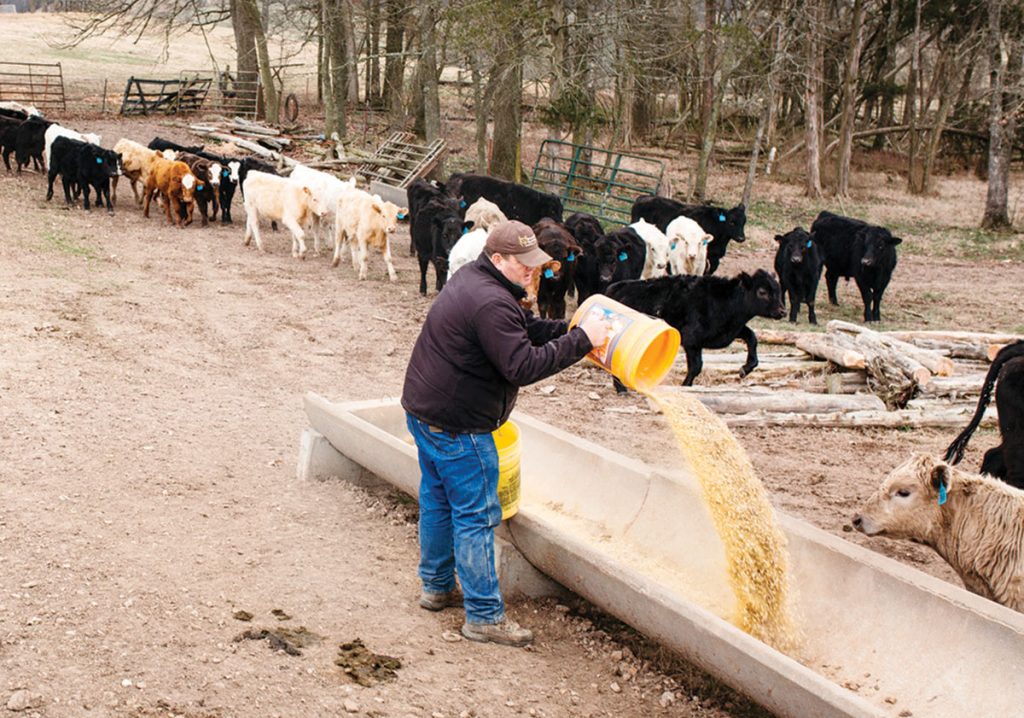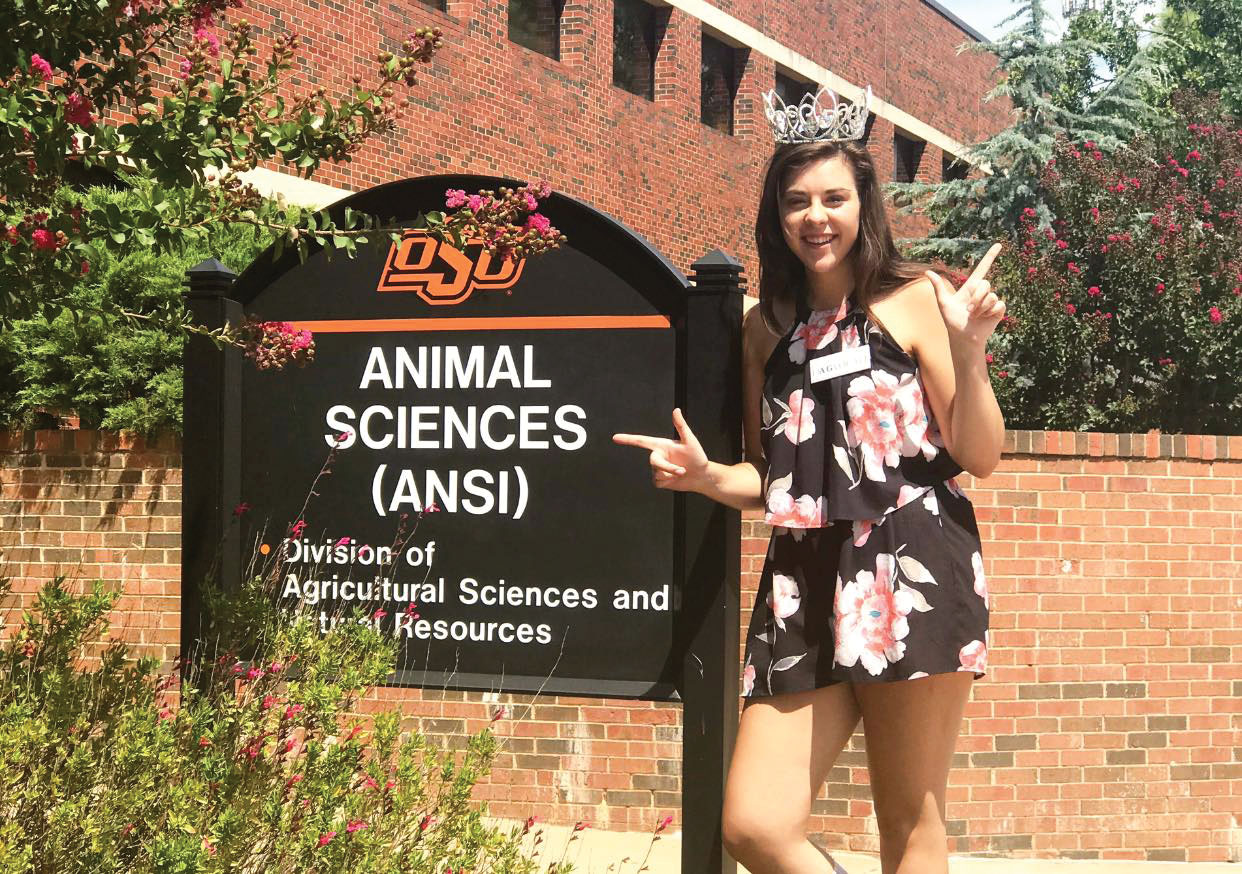
Will Norton manages 1,000 head of stocker calves, in addition to his own cow/calf operation
There are as many different ways to raise cattle as there are farmers. Will and Rachel Norton of Harrison, Ark., have followed one of the more unusual paths.
They operate on 1,300 acres on which they support 1,000 head of stocker cattle. They purchase calves year-round and retain ownership until harvest. They also have a cow/calf herd with 70 cows.
Will and Rachel started dating in 2006 and were married in 2010 on the farm. Now the couple has two children, a 6-year-old daughter Whitley and a 3-year-old son Kal. Will runs the farm while Rachel works for Arkansas Game and Fish as a wildlife biologist.
Will’s father and mother, Dennis and Judy, still run a cow/calf farm though Dennis drove a truck at night for years.
Another important influence in Will’s journey to have his own farm was family member and fellow cattleman Dan Norton, wise and practical in the way elderly people often are. Dan repeatedly maintained when cattle were cheap, a farmer couldn’t afford not to take care of them because he had to get the most he could for every animal in order to make a living. He continued by explaining when cattle were high, a farmer couldn’t afford not to take care of them because he couldn’t afford to lose a single valuable animal. That insight is still the heart of Will’s farm.
While Will always knew he wanted cattle, he never planned to have stocker cattle. Working on the family farm as well as working at local sale barns and hauling cattle, the stocker business grabbed his attention.
“I bought up some cattle early on, and God opened doors and steered me in this direction,” Will explained.
The operation is Will’s and includes a set of handshake partnerships. Will has buyers who purchase calves between 350 and 800 pounds year-round sales. The calves are delivered after the sale, processed on Monday and receive their first round of vaccinations.
“My job is to take good care of the cattle.”
To gain maximum production, Will spent time working with medicine reps to ensure their products are working to the highest potential. This is completed by an injectable and oral wormer and modified live vaccines upon arrival. Two weeks after arrival, cattle receive their second round of vaccinations. Pneumonia is the number one killer and a constant battle.
The newly-arrived calves stay together for 45 days until their health is confirmed and they are coming to feed well. Then the calves are placed in a group of cattle their size. Will credits a recently retired veterinarian he has known since childhood named Dr. Joe Melton with helping him understand more about cattle health. He now has other good veterinarians available for emergencies and prescriptions.
Will has a weight gain goal of 2 pounds per day, so cattle are generally fed grain daily with the amount determined by the quality of the grass. However, some of the larger calves may receive grain every other day if the grass is good.
An important part of keeping operational costs down is maintaining land health. Good grass minimizes the amount of grain and hay that needs to be fed, therefore keeping costs down. Cattle are sent to Kansas feedlots year-round and fed until they reach approximately 1,425 pounds. Shipping weights vary on each load according to market trends and available farm resources. Finished animals are sold by cash trade at a given price or by a grid price based on carcass grade and yield.
Will’s cow/calf operation is organized to complement the stocker program. The cows are bred by Angus bulls in an effort to improve genetics. Calves are born starting Jan. 1. This time frame works best with Will’s stocker schedule and with Mother Nature. Bulls are put in April 1 and pulled out July 1. These calves are weaned in the fall.
The Nortons are not only lifelong Boone County residents, they are also members of the Boone County, Arkansas and National Cattlemen’s Associations. The success of Norton Cattle Company was recognized when the Norton’s were named the 2020 Farm Family of the Year for Boone County.
“One day Mike McClintock called me and informed me we had been nominated and selected for the honor. We didn’t even know we were in the running,” Rachel said with a laugh.
While Rachel is not directly involved with daily cattle operations, she does further diversify their income. Rachel manages her rental properties and most recently purchased a historic property in Snowball, Ark., near the Buffalo River. She restored the house and rents it as a nightly rental. The Snowball General Store was built in the late 1800s and closed in 1972. As of June 2019, the store has been opened again. The store offers local, handmade items, honey, jellies, barbeque sauce, jewelry, camping gear, fishing tackle and also sells ice and cold drinks 24/7.
“Tourists who come to the area love to visit any place historic and our general store fits the bill,” Rachel said. “During the Christmas shopping season, we wrapped presents in brown paper and tied them up with string just like in the old days and the customers loved it.”
Young Whitley and Kal already show a love for the farm and running the Snowball Store. Whitley especially appreciates going to her grandfather’s to ride horses and accompanying her dad on Mondays when the cattle are being worked. Both kids help Will by being the “Shoo Crew.” The “Shoo Crew” helps out by using flags and rattle paddles to keep the cattle pushed up to the chute.
“Our little girl knows an awful lot about cattle already and loves to give her opinion on what everybody does,” Will explained grinning and shaking his head.







